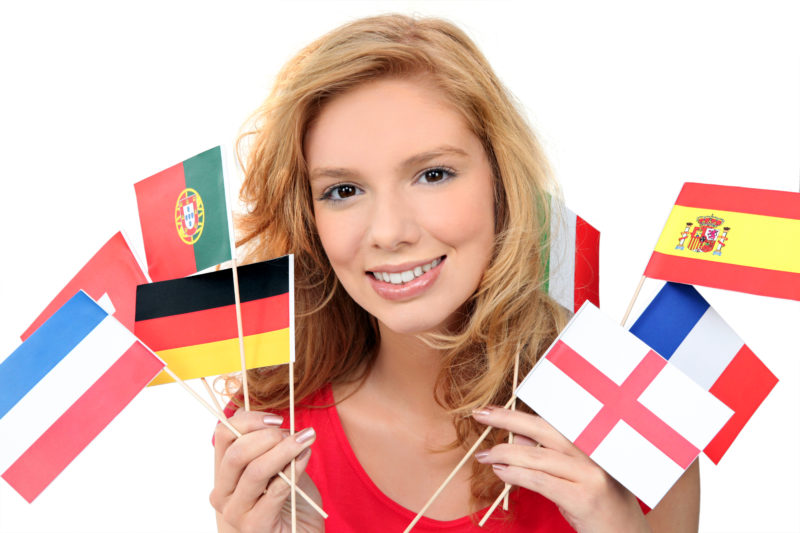
For many years I struggled with associating myself with the country where I was born, especially when I started to travel on a long-term basis and now that I’ve spent most of my adult life living outside of that country.
Mine is not an isolated case, and I know many others who have several thoughts and feelings after going through similar experiences.
I do not feel patriotic nor feel any particular pride for the country I was born in. I do appreciate everything I benefited from while living there, but at the bottom of it what I feel is a sense of being lucky to be born in a very good environment, compared to all the other places that I could have been born and raised in.
I strongly dislike nationalism and have seen its negative outcomes and induced madness first hand in Catalunya.
The concept of the nation-state has been very influential in the past few centuries, and has fully taken the place of religion in many parts of the world. I believe that we are seeing the first signs of the fall of the nation-state, and more and more people losing this strong sense of binding their identity with their country of birth or childhood. For many people who work in the digital industry, this is already the case. As one of them, I consider myself a citizen of the world. Home can be anywhere where I can find a supportive environment, good internet and the freedom to work and live.
Here’s an excerpt from My Country, a song by one of my favorite musicians; Roger Taylor:
I would not fight for my country
I would not work to no rule
Don’t have no truck with no power game
Won’t be some other jerk’s tool
Don’t have no part of no partisans
Won’t have no part ‘cos one party and another’s all the same
All the same
Gonna play it at my own gameDon’t wanna die for some old man’s crusade
Don’t wanna hear what they feed
Don’t wanna kill for some cause of the age
Don’t wanna cry for somebody else’s need
Don’t want no piece of no flag in the breeze
Don’t want no part ‘cos one party and another’s all the same
All the same
Gonna play it at my own game
Going forward, nations will have to compete to attract people to live there, by offering the best possible conditions. In many ways, they will be like today’s companies, in a healthy competitive environment. This will cause governments to stop acting in a totalitarian way and focus on actually being efficient and improving their country in order to attract more quality citizens.

Interesting topic, Jean. Digital nomadism is a growing trend, but will it scale enough to drive a country’s policies?
First, nomadism is not for everyone. It takes a special kind of person to leave friends & family and language. Second, there are many other barriers against nomadism, some artificial like permits and visas and some just natural (a lawyer would have to learn the legal system of the host country). Third, what’s easier? to better the lives of your citizens, or to give them red baseball caps with a slogan on and blame foreigners? Countries will keep on building nationalist sentiments because it is cheap to do so and quite efficient.
There are more factors such as the inherent imbalance of power between nations which prevents healthy competition, and even the fact that there may be real value in the concept of nation as a proxy for cultural group. Anyways, great topic, a lot to unpack, and let’s hope the flip-flop-wearing army of laptop-wielding mercenaries will bring the end of totalitarianism! 🙂
Thanks for your insight Frank. I appreciate such constructive comments. I don’t think it’s only due to digital nomads. I wouldn’t consider myself a digital nomad nowadays as I’m no longer changing countries every few months. However, I do consider myself location independent, so I’m free to choose any location in the world to live and work from (within the limits of my passport).
What I’m getting to is that it’s more of a mental thing. In the past people had extremely strong national and religious identities, but that has already changed. Today, many of the biggest companies have more financial clout than countries, and are in some ways becoming self-sovereign.
I really like the idea of individual sovereignty, and this is one of the reasons that I love the field of crypto, and Bitcoin especially, as it makes it possible for individuals to escape the clutches of their governments, whose only remaining power is that of violence and financial control. There’s something truly magical about being able to store value in an asset that is not liable to confiscation or censorship. A good book about this whole topic is The Sovereign Individual.
well, I do hope you got your BTC worth. I remember reading your articles on the matter when it was 8K. Thanks for the book rec, I’ll check it out.
You’re welcome Frank.